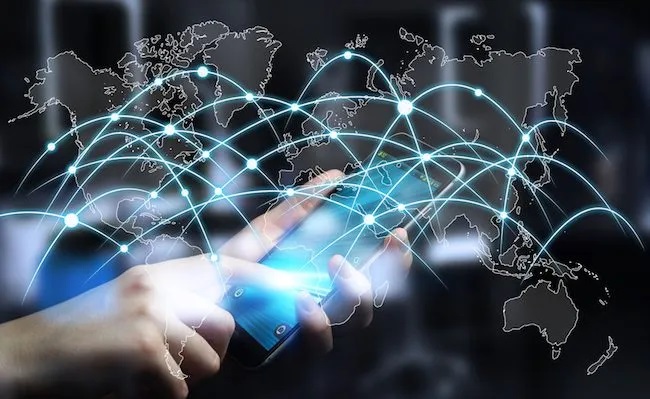MEF’s Riccardo Amati shares his take on the week’s mobile and tech stories from around the world. Headlines include… China Targets Ericsson and Nokia, EchoStar in $10B Verizon Talks, Meta Uses AI Chats for Ads and much more… Alternatively listen On MEF Radio.

China Targets Ericsson and Nokia
China is curbing the use of European telecom equipment in its networks, targeting Sweden’s Ericsson and Finland’s Nokia, as President Xi Jinping pushes to strengthen national control over critical technology — the Financial Times reports.
State-backed buyers now submit foreign contracts for lengthy “black box” security reviews, often taking three months or more, while Chinese rivals face no such scrutiny.
Analysts say these measures have slashed Ericsson and Nokia’s market share in China from 12% in 2020 to around 4% last year.
The move mirrors European restrictions on Chinese vendors like Huawei and ZTE, but the new Chinese rules pose a serious threat to European tech firms, as even small gains in major contracts are increasingly being redirected to local suppliers.

EchoStar in $10B Verizon Talks
EchoStar shares climbed after reports it is in talks to sell part of its 5G spectrum holdings to Verizon.
The licenses, valued near $10 billion, are critical for next-generation mobile services.
The move, as reported by Bloomberg, reflects EchoStar’s retreat from plans to build a full wireless network, as it faces debt pressures and regulatory scrutiny.
Recent spectrum deals with AT&T and SpaceX raised tens of billions, fueling speculation that Verizon could pay a premium.
For the US mobile market, the sale would strengthen Verizon’s 5G reach while shifting EchoStar toward a lighter model built on Boost Mobile and leased networks. In spectrum wars, airwaves are the real currency.

Meta Uses AI Chats for Ads
Meta to use AI chatbot chats for ad targeting: Starting December 16, user conversations with Meta’s AI assistant will help personalize ads and content across Instagram and Facebook. Certain sensitive topics—religion, politics, health, sexual orientation, and race—will be excluded.
The move underscores Meta’s push to integrate AI deeply into its social and mobile ecosystem, turning chatbot interactions into actionable signals for advertising.
CEO Mark Zuckerberg envisions this AI-driven ecosystem as a key funding source for his company’s massive $600 billion AI expansion, leveraging its existing social media ad revenue.

5G Networks Ready for Takeoff
After a slow 2024, standalone 5G networks are poised for a breakthrough in 2025, according to research firm Omdia. Uptake of reduced-capability, or RedCap, devices is accelerating, with Apple’s latest Watch and T-Mobile’s early deployments leading the charge.
Analysts say the surge in RedCap adoption is opening doors for industrial IoT, private networks, and network slicing, enabling ultra-low latency and massive connectivity for smart factories and automation.
Asia-Pacific and Oceania are expected to dominate growth, while subsidies and falling device costs may expand adoption globally, strengthening the mobile ecosystem beyond smartphones.

YouTube Settles Trump Lawsuit
YouTube, part of Google’s mobile and online ecosystem, will pay $24.5 million to settle a 2021 lawsuit filed by President Trump after his channel was suspended post-January 6 Capitol riot. Trump receives $22 million, earmarked for a nonprofit funding a Mar-a-Lago-style ballroom, while $2.5 million goes to other plaintiffs.
The settlement closes the series of lawsuits Trump filed against Big Tech platforms, following Meta ($25 million) and X ($10 million). YouTube reinstated his account in March 2023. The talks included informal interactions at Mar-a-Lago, with final papers signed in the Oval Office.
From a mobile ecosystem perspective, this underscores how major platforms—YouTube, X, and Meta—must balance content moderation with user engagement and regulatory scrutiny.
Decisions affecting high-profile accounts ripple across mobile apps, advertising revenue, and cross-platform integrations, highlighting the financial and operational risks social-media companies face in politically sensitive content management.

Indonesia Suspends TikTok
Indonesia has suspended TikTok’s operating license after the platform refused to fully share live-streaming data from protests in August.
Officials say ByteDance only provided partial information despite repeated government requests, violating its obligations under local digital laws.
The suspension adds uncertainty for TikTok in one of its biggest Southeast Asian markets, where it has over 100 million users.
For Indonesia, the clash underscores rising pressure on global apps to comply with national oversight — especially when political unrest goes online.

Apple Pulls ICE Apps
Apple has pulled ICE-tracking apps from its App Store after the US Justice Department warned they endangered federal immigration agents.
ICE is the controversial U.S. Immigration and Customs Enforcement. Critics say its tactics can be heavy-handed, leading to community fear, family separations, and civil rights concerns.
The most popular of the ICE-tracking apps, ICEBlock, let users crowdsource the location of officials carrying out raids, surging in downloads earlier this year.
Attorney General Pam Bondi said the tool put agents’ lives at risk, prompting Apple to act, stressing its store must remain a safe and trusted marketplace.
The developer defended the app as simple crowdsourced data, but the move highlights the growing tension between law enforcement and digital platforms. In the mobile ecosystem, safety now trumps visibility.

Afghanistan Restores Internet
Internet and cell phone services in Afghanistan were restored on Wednesday, about 48 hours after being abruptly cut, causing chaos in trade, banking, and education.
The Taliban provided no clear reason, though one official cited technical issues. The outage paralyzed remittances, halted online learning for teenage girls and women, and disrupted flights—highlighting how deeply modern connectivity underpins daily life.
The incident underscores a broader lesson: attempts to resist modern technology carry high costs.
By trying to control or block digital networks, the Taliban disrupted essential economic and social functions, showing that a struggle against modernity in a connected world is ultimately self-defeating.
Connectivity isn’t just convenience—it is a lifeline, and efforts to sever it can only leave society weaker and more isolated.

Taiwan Rejects US Chip Demand
Taiwan has rejected a US demand that half of America’s semiconductor needs be produced on US soil, highlighting ongoing tensions in tech supply chains.
Vice Premier Cheng Li-chiun said Taiwan never agreed to the proposal, preferring to focus on trade concessions linked to Section 232 tariffs.
The dispute underscores the critical role Taiwan plays in powering mobile devices, AI hardware, and cloud computing.
Analysts warn that any disruption in Taiwan-made chips could ripple across smartphones, autonomous vehicles, and AI systems globally, as US companies look to diversify production without losing access to advanced semiconductor technology.

ChatGPT Lets Users Shop
OpenAI is letting U.S. ChatGPT users buy items directly through the chatbot from Etsy and select Shopify merchants, via a new Instant Checkout feature.
Shoppers won’t have to leave ChatGPT to complete purchases, with payments processed through Stripe and merchants retaining customer access.
OpenAI also introduced an open-source Agentic Commerce Protocol, allowing merchants to integrate their products into the AI platform, laying the groundwork for future AI agent-based shopping.
This move signals growing competition with e-commerce giants as ChatGPT becomes a hub for both product search and transactions.

EA Taken Private in $55B Deal
Electronic Arts, the California-based video game giant behind EA Sports FC, Madden NFL, and The Sims, is being taken private in a record $55 billion deal led by a Saudi-backed consortium organized by Jared Kushner (Trump’s son-in-law) and Silver Lake.
The all-cash transaction values EA shares at $210, a 25 percent premium, making it the largest leveraged buyout in history.
The financing includes $36 billion in equity, including the Saudi Public Investment Fund’s existing stake, and a $20 billion loan led by JPMorgan.
Investors are betting on artificial intelligence to cut costs across game development, from playtesting and creating assets to generating more responsive characters and adaptive storylines.
CEO Andrew Wilson will remain in charge when the deal closes in the first half of 2027.
The takeover also strengthens EA’s position in the mobile gaming ecosystem, complementing PIF’s acquisitions like Pokémon Go, as mobile, console, and PC platforms increasingly intersect in global gaming.

GIP Eyes $40B Data Center Deal
Global Infrastructure Partners (GIP) is in advanced talks to acquire Aligned Data Centers, backed by Macquarie, in a deal that could be worth around $40 billion.
MGX, an artificial intelligence investment company established by Mubadala, would also invest independently.
Aligned operates 78 data centers across the United States and South America, positioning it as a key beneficiary of the AI spending boom.
The deal reflects soaring interest in digital infrastructure as investors pour capital into chip makers, AI startups like OpenAI and Anthropic, and data center operators.
At $40 billion, this would be one of the largest deals globally in 2025, betting on AI as the next industrial force.

VCs Pour $193B into AI
Venture capitalists (VCs) have poured a record $192.7 billion into artificial intelligence (AI) startups so far in 2025, making this the first year where more than half of global venture funding is going into AI.
Most of the money went to established companies, such as Anthropic Public Benefit Corporation (PBC) and xAI, while non-AI startups struggled to attract investment.
Overall, global venture funding is down compared with previous years, with fewer firms raising new funds. In the United States (US), investors have dedicated 62.7 percent of their dollars to AI, underscoring how artificial intelligence is dominating the technology investment landscape.
In venture capital, it’s AI or nothing.

AI May Not Kill Jobs
New research from Yale and the Brookings Institution suggests the AI revolution may be less disruptive to US jobs than many tech leaders claim.
Despite the rapid adoption of ChatGPT since late 2022, the study finds little evidence that generative AI is eliminating positions or reshaping the overall labor market.
Economists say AI is mostly changing the mix of roles for tech and mobile ecosystem workers—think app development, cloud services, and smartphone AI integration—rather than cutting jobs economy-wide.
Nobel laureate Daron Acemoglu warns that hype from AI companies may exaggerate its immediate impact, urging firms and regulators to monitor adoption carefully.
The findings provide some reassurance as smartphones and connected devices increasingly incorporate AI features into everyday work and consumer applications.





